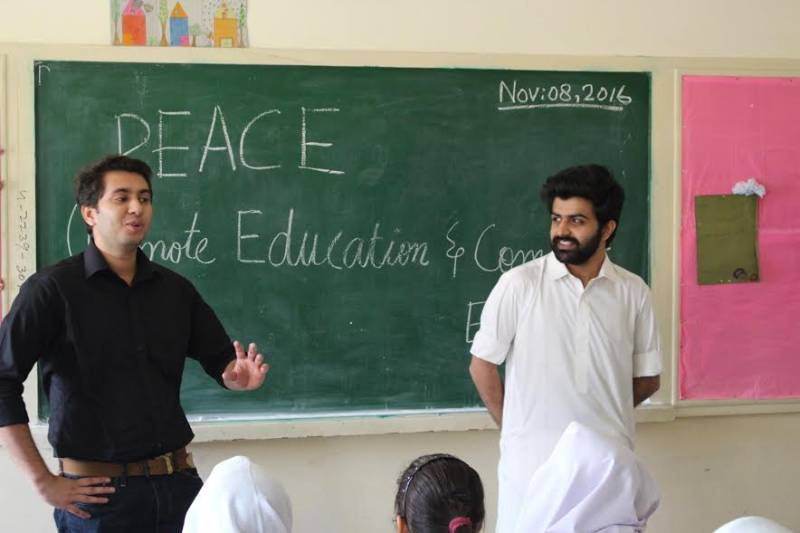In recent months, we have seen a sharp increase in terrorist attacks, be that on police academies, hospitals or shrines. Some of the favorite targets of these groups include security officials and minority sectarian groups like Sufis and Shiites.
What is even more worrying about these attacks is that they were carried out, not by the now easily identified national adversary the TTP (Tehrik-e-Taliban Pakisan), but by other extremist outfits like the Islamic State, Lashkar-e-jhangvi, Sipah-e-Sihaba and other splinter groups like Jundallah and Jamaat-ul-Ahrar. The failure of the government to prevent the rise of new terrorist groups like these begs serious questions on their ability to find a long-term solution to a terror-free nation.
Where are we going wrong then? Is fighting a highly successful military operation in North Waziristan not enough to purge ourselves of these fanatics? Does the responsibility to fight against extremism extend only to the army and the government or can the civilian population make a contribution against this great hurdle faced by our country? We’ve tried talking to them and we’ve tried bombing them, but we still can’t manage to rid ourselves of the menace of extremism.This group of students from LUMS believes they have found the solution to this question.
As part of the Peer to Peer: Challenging Extremism (P2P) project, a group of students from the Lahore University of Management Sciences (LUMS) have launched a campaign by the name of PEACE, which is an acronym for Promote Education and Combat Extremism.

They believe that the need to tackle the prevalent atmosphere of intolerance, fundamentalism and hatred for anyone who does not conform to the image of the ‘perfect’ Muslim is as important as actually fighting militants in the north. It is this atmosphere which allows extremist groups to proliferate in all parts of Pakistan, including south Punjab, Balochistan and even Sindh. Groups which aim to radicalize the youth are not only tolerated in our society but are sometimes even popular enough to hold large gatherings in major cities where they preach hatred and intolerance.
According to one of the team members: “It is imperative to provide a counter-narrative to ideas propagated by extremist groups. We need to show our youth that not only is it possible to live in harmony and co-operation but that it is in the best interest of all communities involved to do so.”
Up till now, the team has visited about 30 schools all across the city of Lahore and have conducted different types of activities covering a vast array of themes.“We try to deal with various themes such as women empowerment, transgender rights, honor killings, religious and ethnic minority rights and relations with India,” said Osama, a member of the team, “It is important to deal with these topics as this is exactly the type of topics that extremist groups use to build a one-sided narrative and brainwash members of our youth.”
The project itself was diverse in its visits to schools; with a wide range between underfunded public schools to established private schools. The inclusivity of the initiative also extended to slum areas which housed many squalor settlements. The team remarked that the visits were remarkably eye opening, exposing the underside of Pakistan that many university students read about but rarely see.
“Instead of lecturing the students for an hour or two, we try to indulge them in activities such as public speaking, drama and art,” said Ali, a member of the team, “we noticed kids respond much better to engaging and interactive sessions instead of a boring speech on why it’s wrong to discriminate. It’s much more effective to show through actions than to simply say through words”.

The team discusses a wide variety of themes in their sessions such as human rights, sectarian killings, women empowerment in Pakistan and even cross-border harmony.
Furthermore, the team has utilized various artistic and musical outlets to diversify and enrich their campaign. They painted a ‘Wall of Peace’ in one of the schools they visited to serve as a reminder for what the children learnt that day as well as organized multiple concerts by leftist progressive band Laal. Currently, the band has performed 11 concerts in different schools with nearly 3,000 students attending.

The team has also tried to use every resource at their disposal. They have been successful in collaborating with the LUMS Community Service Society to host the Youth Leadership Community Service Symposium (YLCSS), a massive event with over 500 students in attendance which aims to impart leadership and communication skills to students. The event concluded with a talk by renowned actor, educational activist and motivational speaker, Omair Rana.

Through this campaign, the students aim to increase awareness, empathy, tolerance and encourage critical thinking in students.
Team PEACE is certain that if their initiative to educate is pursued on a large scale where it reaches every district, town and village, opinions will change, myths and stereotypes will shatter, and resentment and routine violence will end.
“We have already received numerous requests from people wishing to volunteer” a member of the team remarked, “the people of Pakistan are tired of constant warfare and understand the strength of education as a tool to fight education, they are ready to play their part in ending extremism in our country once and for all!”
Pakistan is home to a multitude of cultures and identities, it cannot afford internal conflicts which only leave it weak and disunited. For it to find its way out of darkness to peace and prosperity, we the citizens must learn to live together.






